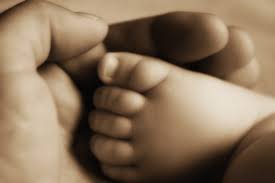Women historically have been dubbed “the weak sex,” “the second sex,” or “the inferior sex.” Frequently, they have been considered “less talented, less strong, less creative, less interesting, less intelligent, less artistic than [their] male counterpart[s].” Philosopher Alice von Hildebrand noticed that “[t]he history of the world is mostly the history of the achievements of human males; from time to time, a female is mentioned, but she is then commended for her ‘manly’ qualities, or for having ‘a virile mind.’”It is usually considered an insult when a man is labeled “womanish” or “effeminate.” And statistics show that most couples would prefer to have a baby boy than a baby girl.
So what is it that has caused such belittlement of the female sex? She is certainly smaller and weaker from a purely physical perspective— a truth that even modern feminists cannot deny. But what, if anything, can really be said about womanhood?
Contrary to the popular ideology of modern feminists, women need not feel that they are, by some unfortunate stroke of nature, condemned to a disadvantaged and victimized position. So-called feminists buy into the falsehood that because women have been viewed as “different” in the past, they are at a disadvantage currently, and must fight to regain an equal place in society. (Enter in the Pill, abortion, and a host of other female-demeaning societal evils.) But ironically, far from taking a pro-woman stance, these feminists are anti-woman inasmuch as they promote their equalizing goal by masculinizing women. They set out to androgynize those characteristics that are uniquely female and fabricate those that are uniquely male, thus suggesting that only the later have value. Yet women were made neither for androgyny nor for masculinity, but were made to be particularly and beautifully feminine.
Truly, to say that women differ from men need not be interpreted as a kind of female criticism; instead, it can be understood as an honest acknowledgment of the unique gifts, talents, and virtues which women possess— often to a greater degree than their male counterparts. But if women are different than men (though not lesser), where do those differences lie?
I believe a thought-experiment may be a useful response. Edith Stein asks us to imagine that a group of men and women are clustered behind a closed door. The door opens, and as they enter the room behind, they see that there are only two things within it: a cradle with an infant on one side, and a flashy new computer on the other. Generally speaking, the women will flock to the baby, scooping him up and passing him amongst themselves, “oohing” and “aahing” as he coos. Meanwhile, most men will take a cursory glance at the baby before rushing over to the computer to play and explore the flashy high-tech gadget. In other words, women largely will be drawn to the personal while men likely will be lured by the intellectual.
Such a demonstration suggests it is herein, in a special way, that a woman’s gifts and talents lie: in nurturing and tending, in adoring and cherishing. The female, with her natural maternal instincts, often sees with clearer eyes than the man the value of persons and relationships. She is instinctively inclined toward the human and the intimate. This is why a woman who procures an abortion is cut so deeply into her being; by nature, she is made to help rather than harm. She is an embodiment of self-gift. And it is in this way that women teach men morality.
Louis Fisher, in his biography of Gandhi, writes, “Gandhi feared neither man nor government, neither prison, nor poverty nor death. But he did fear his wife.” Men will be challenged to be men by women who live out their feminine ethic in proper accordance with their nature. For a morally strong woman inspires a man to be a morally strong man— one rich in prudence, steadfast in justice, abounding in strength of will, and constant in his role as protector. His is the honor to care for women and children.
Indeed, a woman’s feminine ethic is great. Her unique differences are clearly spirited affirmations— positive, naturally feminine characteristics by which women are apt to play a special role in the family and society. Fulton J. Sheen certainly thought this was true: “To a great extent the level of any civilization is the level of its womanhood. When a man loves a woman, he has to become worthy of her. The higher her virtue, the more her character, the more devoted she is to truth, justice, goodness, the more a man has to aspire to be worthy of her. The history of civilization could actually be written in terms of the level of its women.”
The privilege is hers.
Catherine Palmer
Generation Life



Leave a Reply
You must be logged in to post a comment.